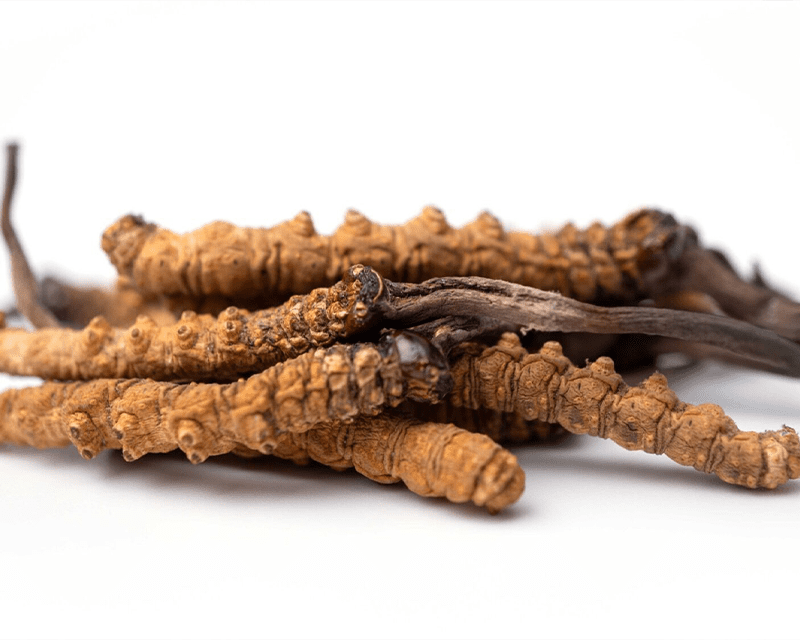Overview of Cordyceps Sinensis:
Cordyceps Sinensis, also known as caterpillar fungus, is a unique medicinal fungus that has been used in traditional Chinese medicine for centuries. It is a parasitic fungus that grows on the larvae of insects, particularly the caterpillar of the ghost moth. This rare and highly prized fungus is found primarily in the mountainous regions of Tibet, Nepal, Bhutan, and parts of China.
Cordyceps Sinensis is known for its potential health benefits, including its ability to support immune function, increase energy levels, and improve respiratory health. In traditional Chinese medicine, it is believed to tonify the kidneys and lungs, as well as support overall vitality. Due to its scarcity and high demand, Cordyceps Sinensis is one of the most expensive medicinal fungi in the world, commanding prices that can exceed that of gold.
History and Origins of Cordyceps Sinensis:
Cordyceps sinensis, also known as caterpillar fungus or "winter worm, summer grass," has been an integral part of Traditional Chinese Medicine for centuries. Its use dates back to ancient times when it was highly valued for its potential health benefits. The fungus primarily grows in the mountainous regions of Tibet, Nepal, India, and Bhutan, where it parasitizes the larvae of ghost moths.
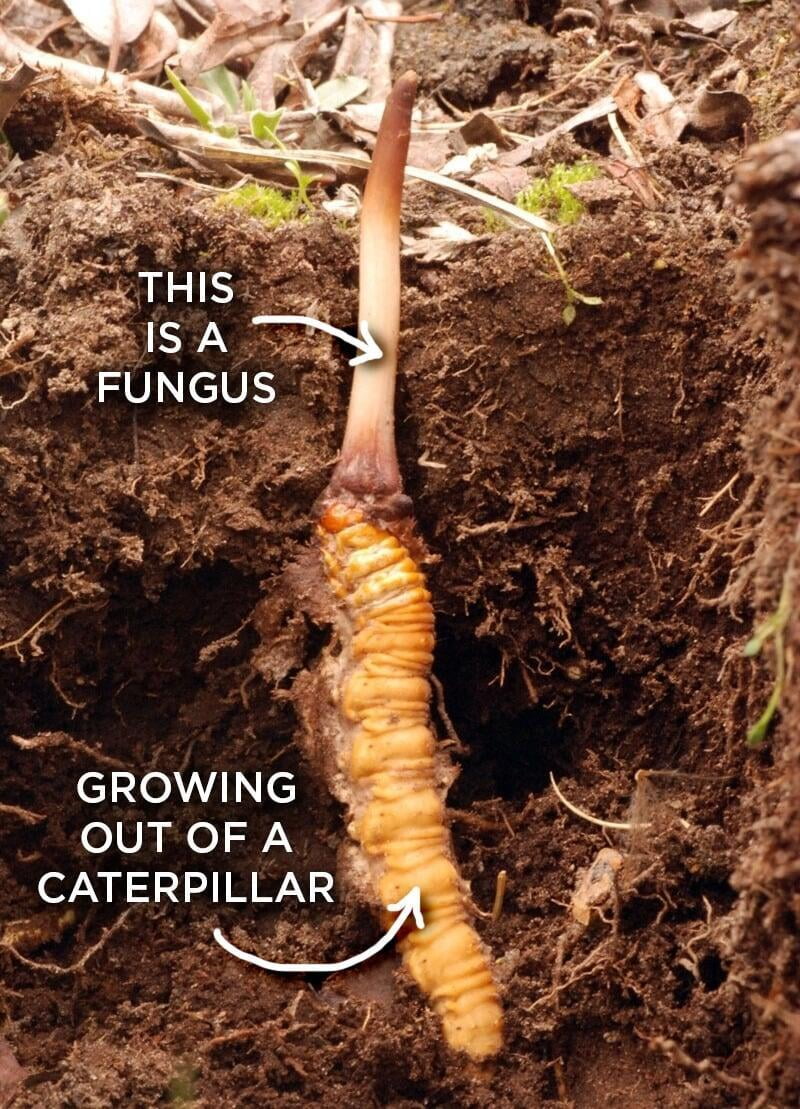
Legend has it that the discovery of the cordyceps fungus's potential benefits originated from observing the increased vitality and energy of yaks that grazed in areas where the fungus grew. This observation led to its inclusion in traditional medicinal practices, where it was believed to enhance endurance, strength, and overall health. Over time, the reputation of cordyceps sinensis as a potent natural remedy spread, leading to its cultivation for commercial purposes in various parts of the world.
Composition and Nutritional Value of Cordyceps Sinensis:
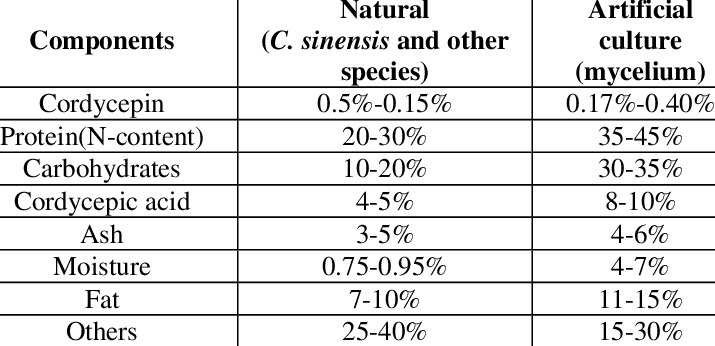
Cordyceps sinensis is a fungus that has been used for centuries in traditional Chinese medicine due to its potential health benefits. This unique fungus is composed of a variety of bioactive compounds, including polysaccharides, proteins, vitamins, minerals, and antioxidants. These components contribute to the nutritional value of Cordyceps sinensis, making it a popular supplement choice for those seeking to support their overall health and well-being.
In terms of its nutritional content, Cordyceps sinensis is a good source of essential amino acids, which are the building blocks of proteins necessary for various physiological functions in the body. Additionally, it contains polysaccharides that may help support immune function and adaptogenic properties that could aid in combating stress and fatigue. The combination of these nutritional elements makes Cordyceps sinensis a valuable addition to a healthy diet and lifestyle.
Potential Health Benefits of Cordyceps Sinensis:
Cordyceps sinensis has been traditionally used in Chinese medicine for centuries due to its potential health benefits. It is believed to have adaptogenic properties, meaning it may help the body adapt to stress and promote overall well-being. Some studies suggest that cordyceps sinensis could enhance athletic performance and endurance by improving oxygen utilization and reducing fatigue.
Additionally, cordyceps sinensis is thought to have anti-inflammatory and antioxidant properties, which may help protect the body from oxidative stress and inflammation. Some research indicates that this mushroom may also support the immune system, promoting better immune response and overall health. While more studies are needed to fully understand the extent of its benefits, cordyceps sinensis shows promising potential as a natural supplement for various health concerns.
Research Studies on Cordyceps Sinensis:
Numerous research studies have been conducted to explore the potential health benefits of Cordyceps Sinensis. Some studies have suggested that Cordyceps Sinensis may have anti-inflammatory properties, which could be beneficial for individuals with conditions such as arthritis. Additionally, research has indicated that Cordyceps Sinensis may have antioxidant effects, which could help protect cells from damage caused by free radicals.
Moreover, some studies have shown that Cordyceps Sinensis may have potential immune-boosting properties. This could be particularly valuable in supporting the body's natural defense mechanisms against pathogens and illnesses. While more research is needed to fully understand the mechanisms by which Cordyceps Sinensis exerts its effects, these initial findings are promising and warrant further investigation.
Recommended Dosage of Cordyceps Sinensis:
When it comes to consuming Cordyceps Sinensis, the recommended dosage can vary depending on the form of the supplement. For powdered Cordyceps, a typical dosage ranges from 1,000 to 3,000 milligrams per day. This can be divided into two or three doses throughout the day to ensure
optimal absorption.
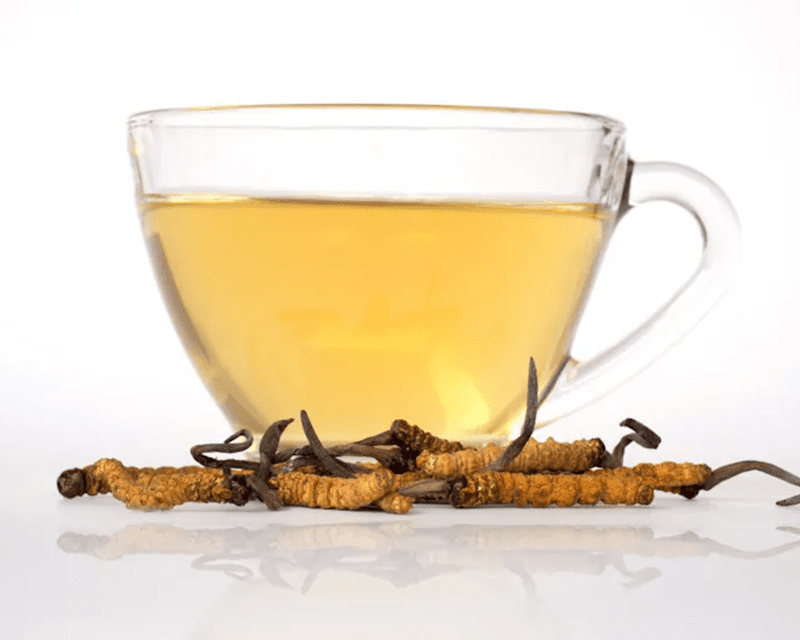
For Cordyceps Sinensis extract capsules or tablets, a common dosage recommendation is around 500 to 1,500 milligrams per day. It's important to follow the manufacturer's instructions on the specific product you are using, as potency can vary between brands. As with any supplement, it is advisable to start with a lower dosage and gradually increase if needed while closely monitoring how your body responds.
Possible Side Effects of Cordyceps Sinensis:
Some individuals may experience mild gastrointestinal discomfort, such as nausea, diarrhea, or bloating, when taking cordyceps sinensis supplements. In rare cases, allergic reactions like skin rashes or itching may occur, and individuals with known allergies to fungi should exercise caution when consuming this medicinal mushroom. It is advisable to discontinue use and consult a healthcare provider if any adverse reactions occur.
Moreover, cordyceps sinensis may interact with certain medications, particularly those that affect blood clotting or the immune system. Individuals taking anticoagulant or antiplatelet drugs, as well as immunosuppressants, should seek medical advice before incorporating cordyceps sinensis into their regimen to prevent potential interactions that could compromise their health. It is crucial to prioritize safety and consult with a healthcare professional before starting any new supplement to ensure compatibility with existing medications and health conditions.
Interactions with Medications and Health Conditions:
Individuals with pre-existing health conditions or those taking medications should exercise caution when considering the use of Cordyceps sinensis. It is important to consult with a healthcare provider before incorporating Cordyceps sinensis into your routine, as it may interact with certain medications or exacerbate certain health conditions. Particularly for individuals with autoimmune disorders, bleeding disorders, or those undergoing surgery, it is crucial to seek professional medical advice before consuming Cordyceps sinensis.
For individuals taking medications that affect the immune system, such as immunosuppressants or corticosteroids, Cordyceps sinensis may potentially interfere with their effectiveness. Additionally, for individuals on blood-thinning medications like warfarin or aspirin, Cordyceps sinensis may increase the risk of bleeding. It is essential for individuals on these medications to work closely with their healthcare provider to monitor their condition and adjust medication dosages as needed if incorporating Cordyceps sinensis into their regimen.
How to Choose and Store Cordyceps Sinensis:
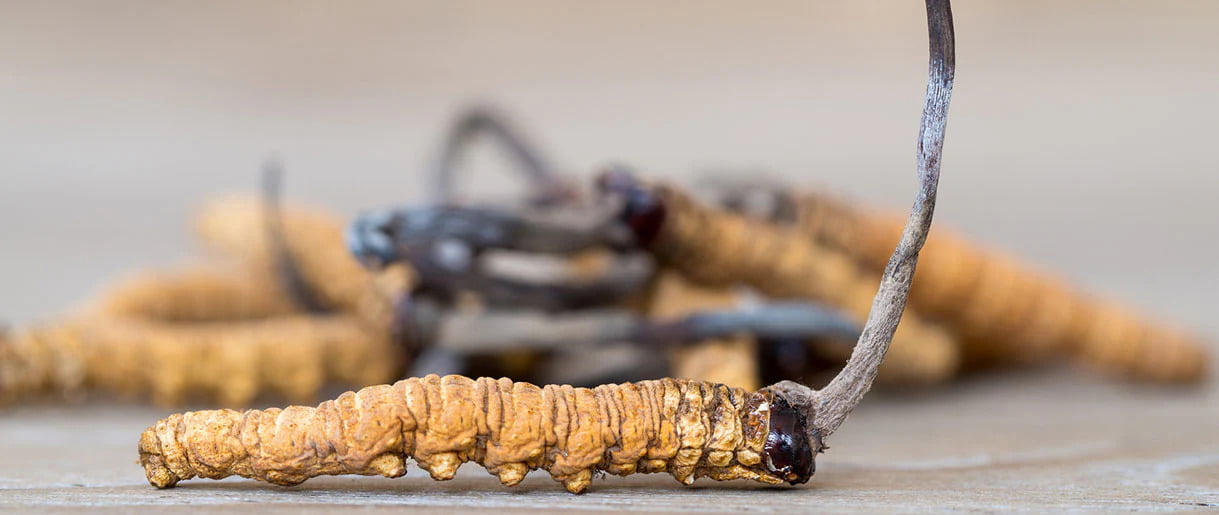
When selecting Cordyceps Sinensis, it is essential to look for reputable suppliers that offer high-quality products. Opt for brands that source their Cordyceps from reliable locations and follow strict quality control measures. It is recommended to choose Cordyceps Sinensis in various forms such as capsules, powders, or tinctures, based on personal preferences and convenience.
To ensure the freshness and potency of Cordyceps Sinensis, store it in a cool, dry place away from direct sunlight and moisture. Seal the product tightly after each use to prevent exposure to air and contaminants. It is advisable to adhere to the expiry date mentioned on the packaging and follow any specific storage instructions provided by the manufacturer for optimal effectiveness.
Summary of Cordyceps Sinensis and Final Thoughts:
In conclusion, Cordyceps Sinensis is a fascinating mushroom with a long history of use in traditional Chinese medicine. It has gained popularity in recent years due to its potential health benefits and nutritional value. Research studies have shown promising results in areas such as immune support, performance enhancement, and anti-aging properties.
When considering Cordyceps Sinensis supplementation, it is important to consult with a healthcare provider to determine the appropriate dosage and ensure that it is safe for your individual health needs. Additionally, it is crucial to purchase high-quality products from reputable sources and store them properly to maintain their efficacy. Overall, Cordyceps Sinensis has the potential to be a valuable addition to a healthy lifestyle, but more research is needed to fully understand its benefits and implications on human health.

